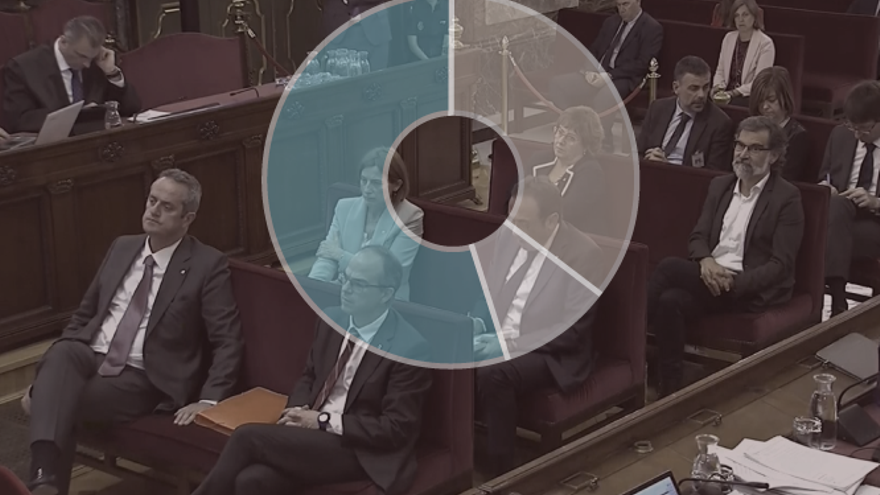
The first beneficiaries of the repeal of the crime of sedition represent the (pen) last episode of the détente policy that have been promoted in recent years by the PSOE from Moncloa and the ERC from the Generalitat. This strategy also has its impact on the opinion trends of Catalans, which have ceased to be as polarized as in the most convulsive stages of the independence process. A survey by the Institut de Ciències Polítiques i Socials (ICPS) of the UAB, carried out between October and November of last year, has detected several indicators of “normalization” in the opinions of citizens regarding 2017, the peak moment of the ‘procés’ .
For the first time in the last 20 years, there are more voters who negatively value the political situation in Catalonia (63.4%) than that of Spain as a whole (60.7%). The political situation evolves differently in each context. In Spain as a whole, negative opinions show an evident downward trend since 2014. In Catalonia there is a certain increase in negative opinions since 2016, on the eve of the most eventful year of the ‘procés’.
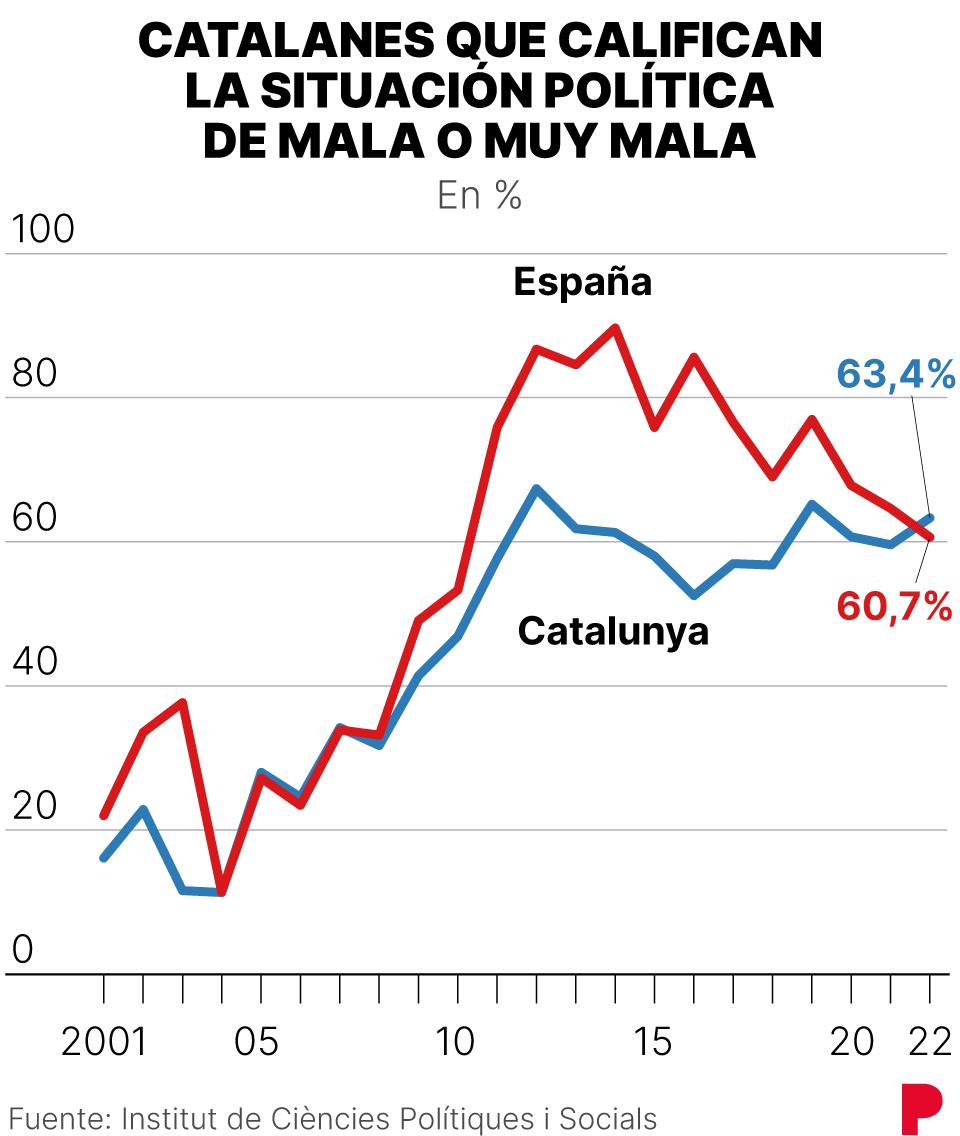

The trend towards “normalization” is also observed in the frequency with which politics is talked about or discussed. The data for the last two years are again similar to those registered before 2011, that is, before the first multitudinaria Day, that of 2012, considered the starting point of the ‘procés’. 56.4% of Catalans state that they discuss politics often or sometimes, compared to 43.6% who do so rarely or never. In 2013, those who argued were three times those who did not argue.
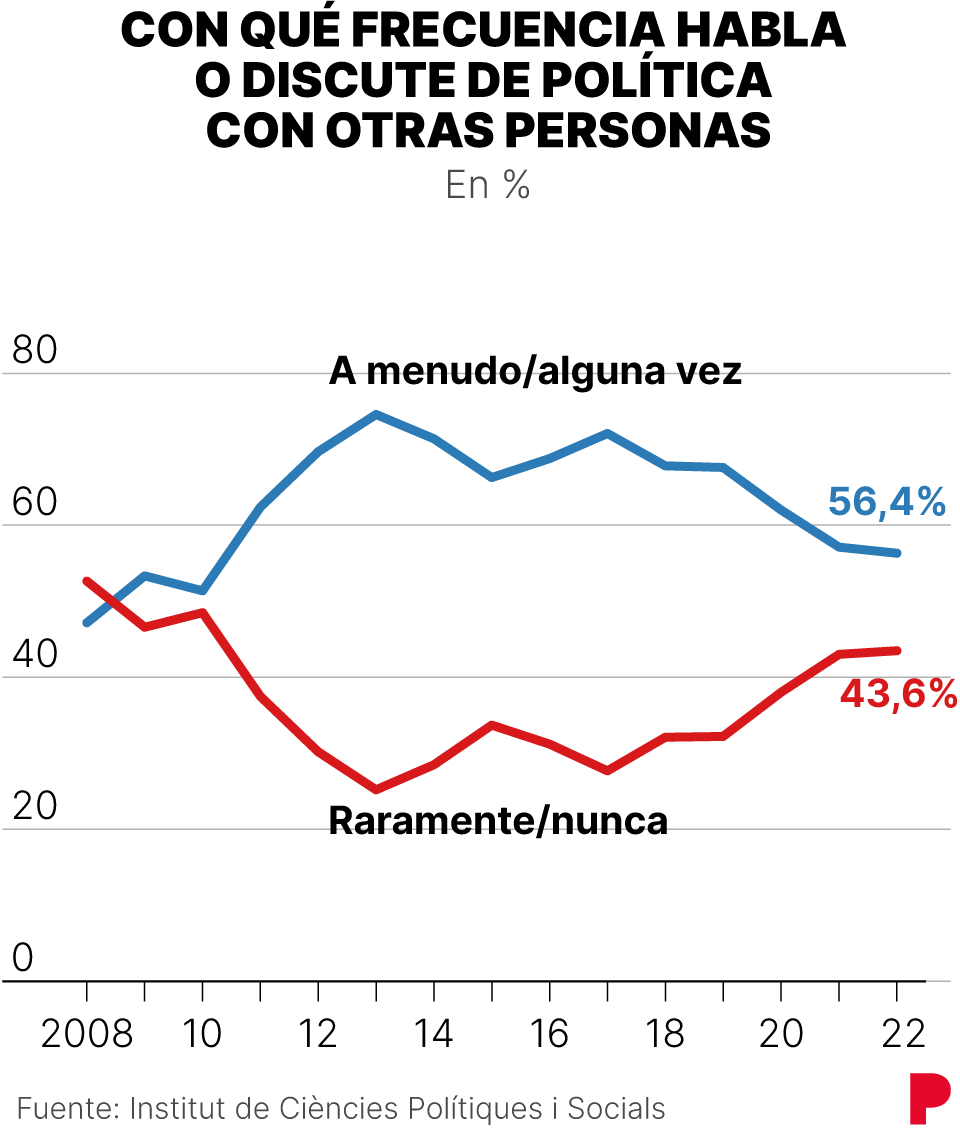
The Government’s assessment

Negative opinions about the Government’s management (48%) reach their record since 2012. Then, criticism of the Generalitat began to grow due to the social cuts Due to the economic crisis, they improved in 2016 and 2017 due to the ‘procés’ and fell again after 1-O and the DUI. But the most significant detail is that this decrease in positive assessments since 2017 is mainly due to the pro-independence voters. Only 12% today consider the Government’s management to be good or very good.
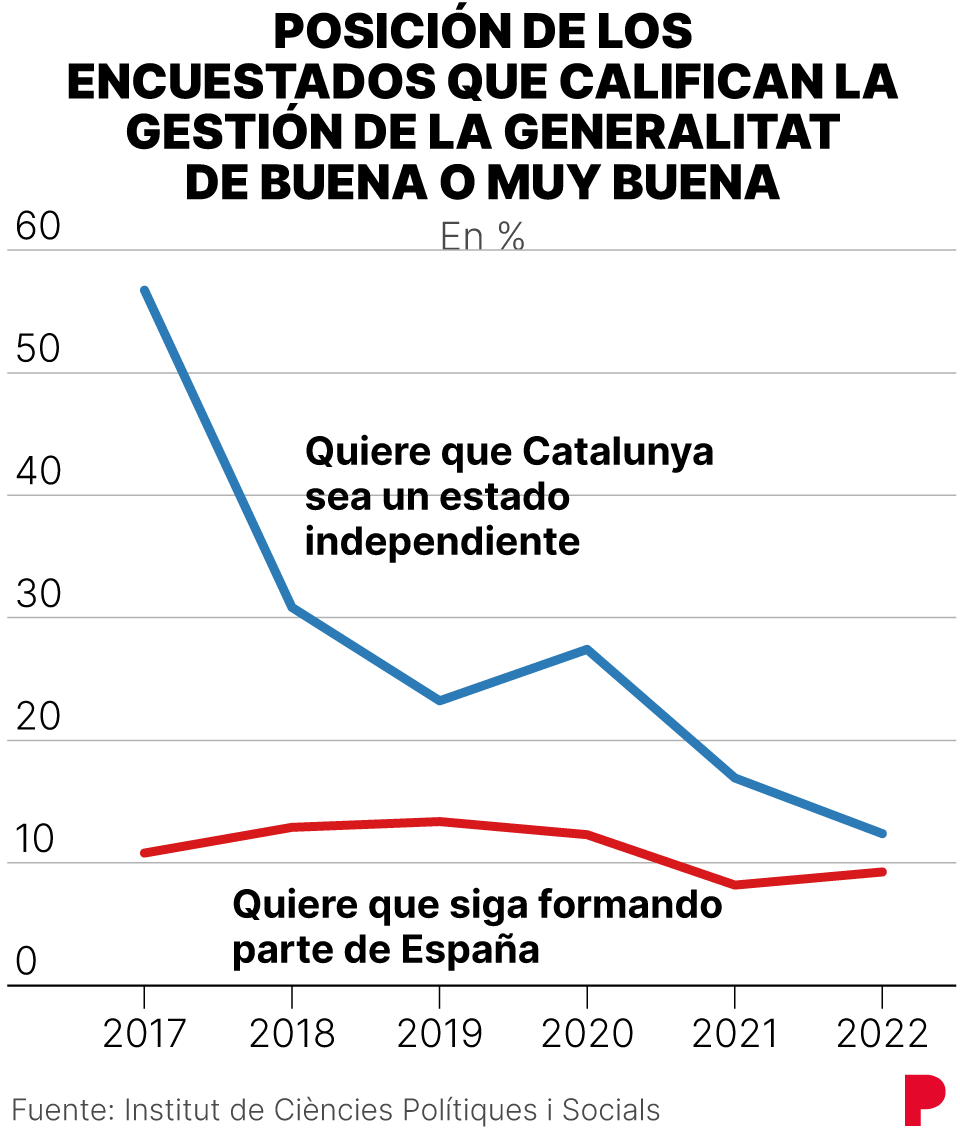
bad image of politicians

The future of the independence process and the consequent polarization of opinions explain that since 2015 there has been a sharp decline in the average ratings of Catalan political leaders, which since 2019 has moved below 5. A similar trend affects the average score of the President of the Generalitat, although in this case the suspended It is the usual note of all the ‘presidents’ since 2005, except for specific exceptions. In this poll, Peter Aragonés gets a 4.41 and is surpassed Jordi Turull (4,54) y Oriol Junqueras (4,84).
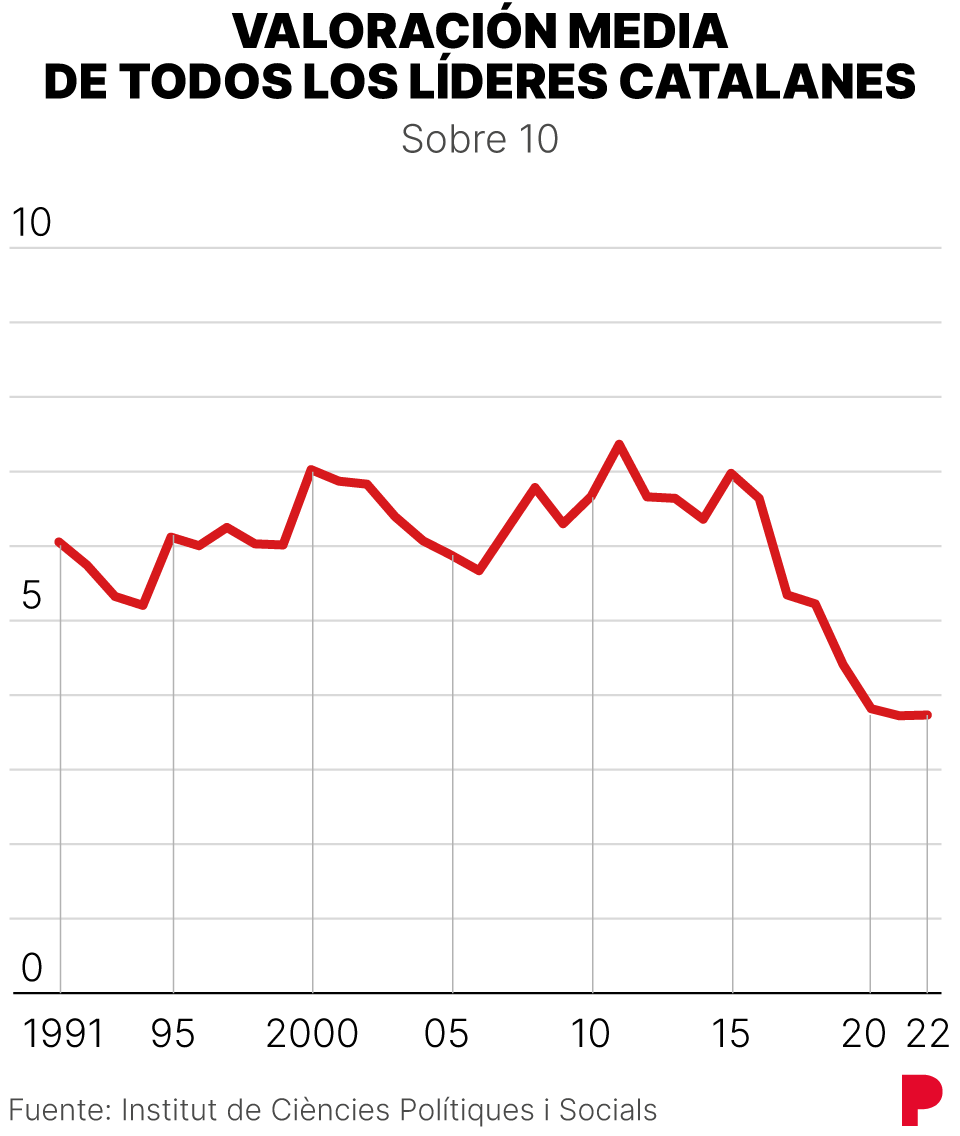
End of the independence idyll

The data that best demonstrates the turning point of the ‘procés’ is the end of the mutual sympathy between the two independentist electorates. The growing rivalry between ERC and Junts has caused, since 2018, a sustained drop in the assessments that voters of each party make of the leaders of the other party. If in 2018 everyone approved of each other, today the voters of JxCat suspend Junqueras and Aragonès, and those of Esquerra do the same with Carlos Puigdemont and above all with Laura Borras. Curiously, the only one he always approved of in both fishing grounds was Quim Torra.
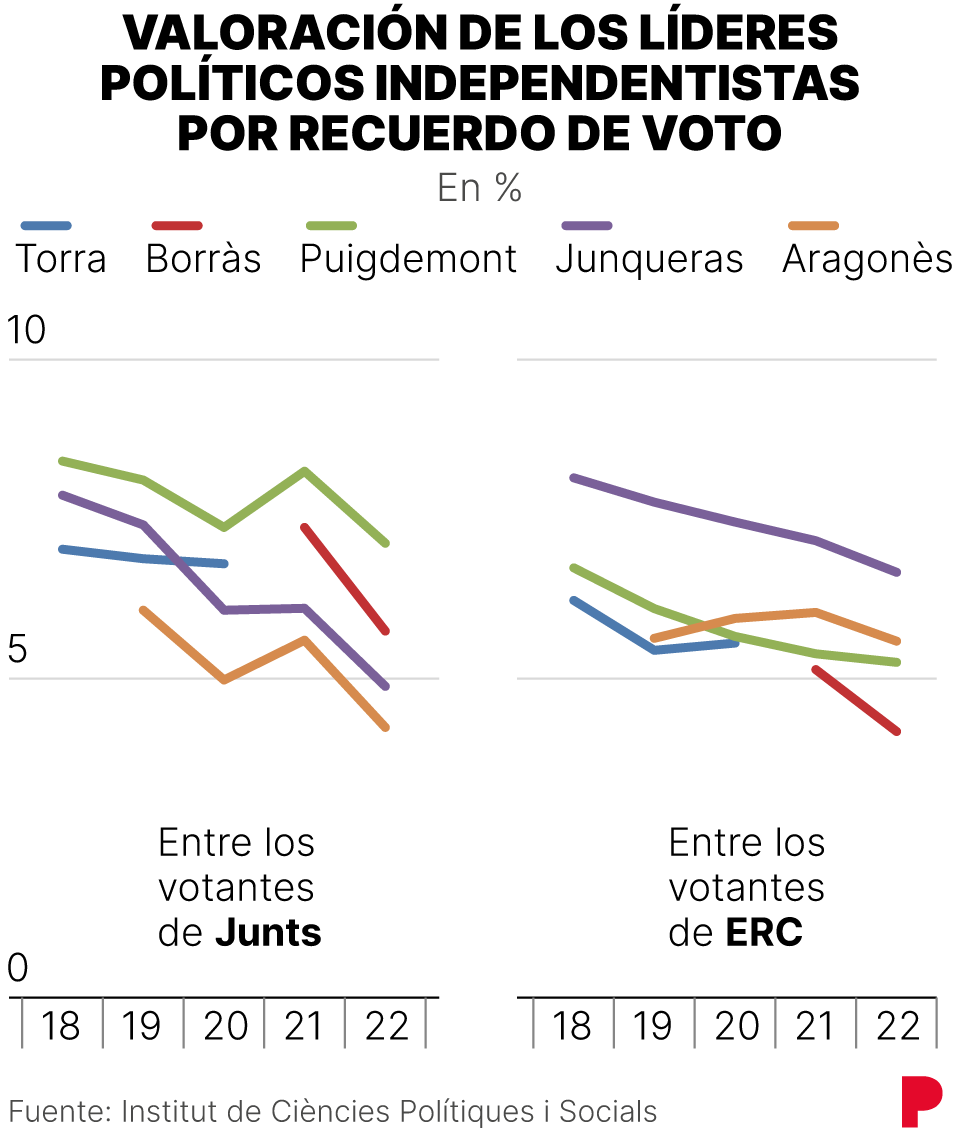

For the first time since the ‘procés’ began, in 2012, a survey places the percentage of support for independence below 40%. The 53,2% of Catalans would vote ‘no’ in a hypothetical referendum, while the 39% they would choose the ‘yes’ ballot. In relation to the last five years, the rejection of secession breaks a new record in this annual study and the support for breaking with Spain hits a new low. In the turbulent autumn of 2017, both percentages stood at dead heat something below 50%.
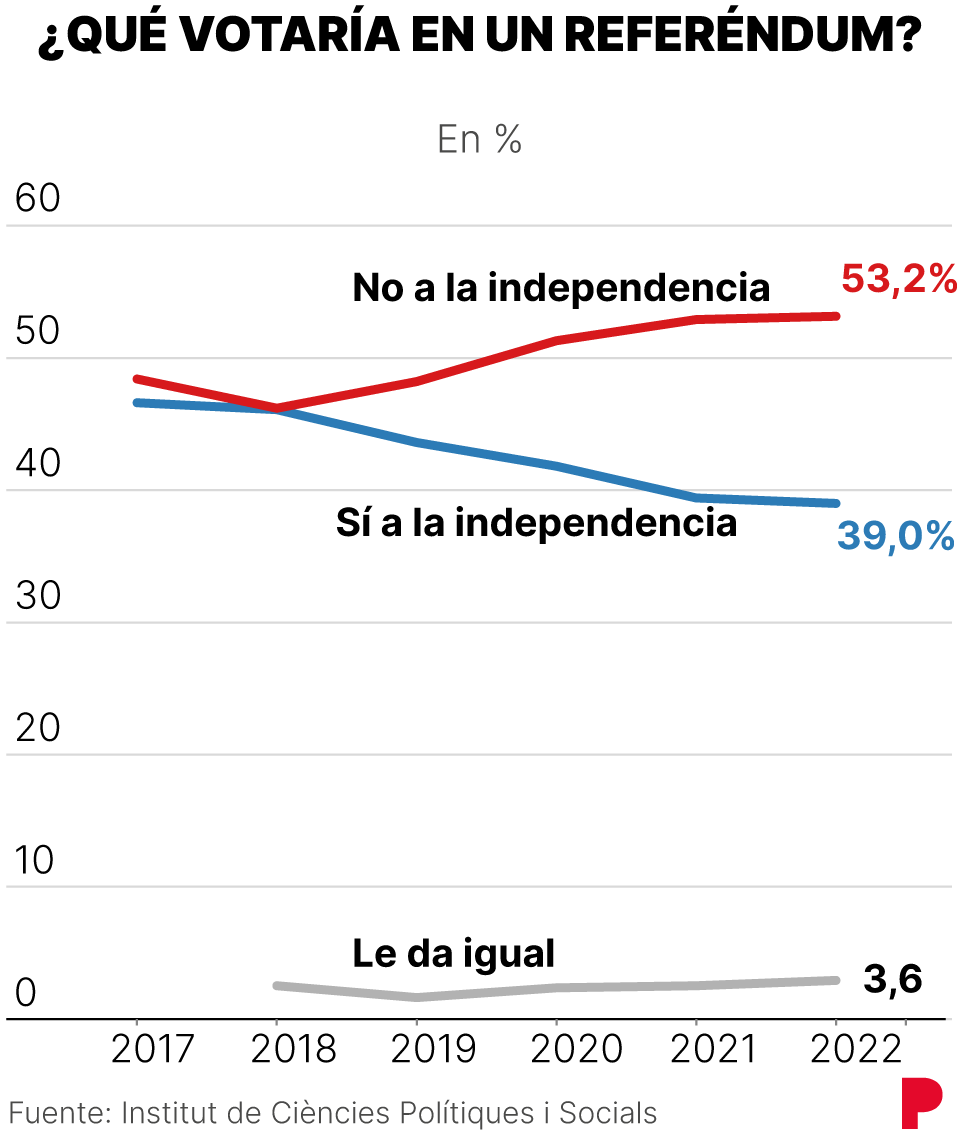
Less drive in ERC and Junts

Before a possible referendum, there is a very significant difference between the 2018 survey and the current one: although the ‘yes’ to independence remains a large majority among voters in ERC y together, the percentage falls steadily, 10 points among Republican voters and 12 points among the post-convergent electorate. Even among supporters of the CUP there is a drop of four points in support for secession compared to four years ago.
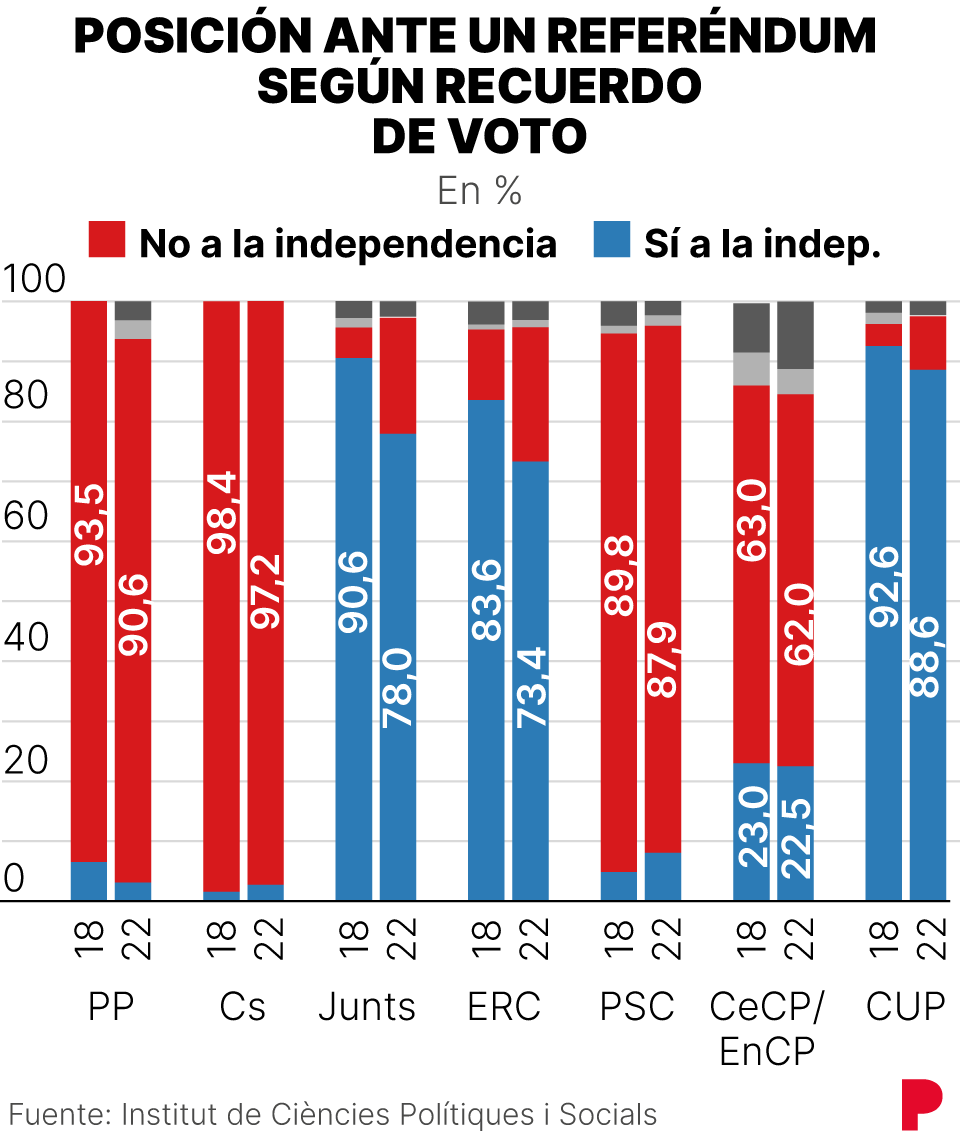

The importance that Catalans give to the question of independence it also marks a minimum again. For 59.8% it is still very or quite important, 20 points less than in 2018. For 39.5% it is little or not at all important, 20 points more. The difference between both percentages is the smallest in four years. Also, for the first time, among non-independence there are more who do not attach importance to this matter (51.6%) than those who attach great importance to it (47.2%).
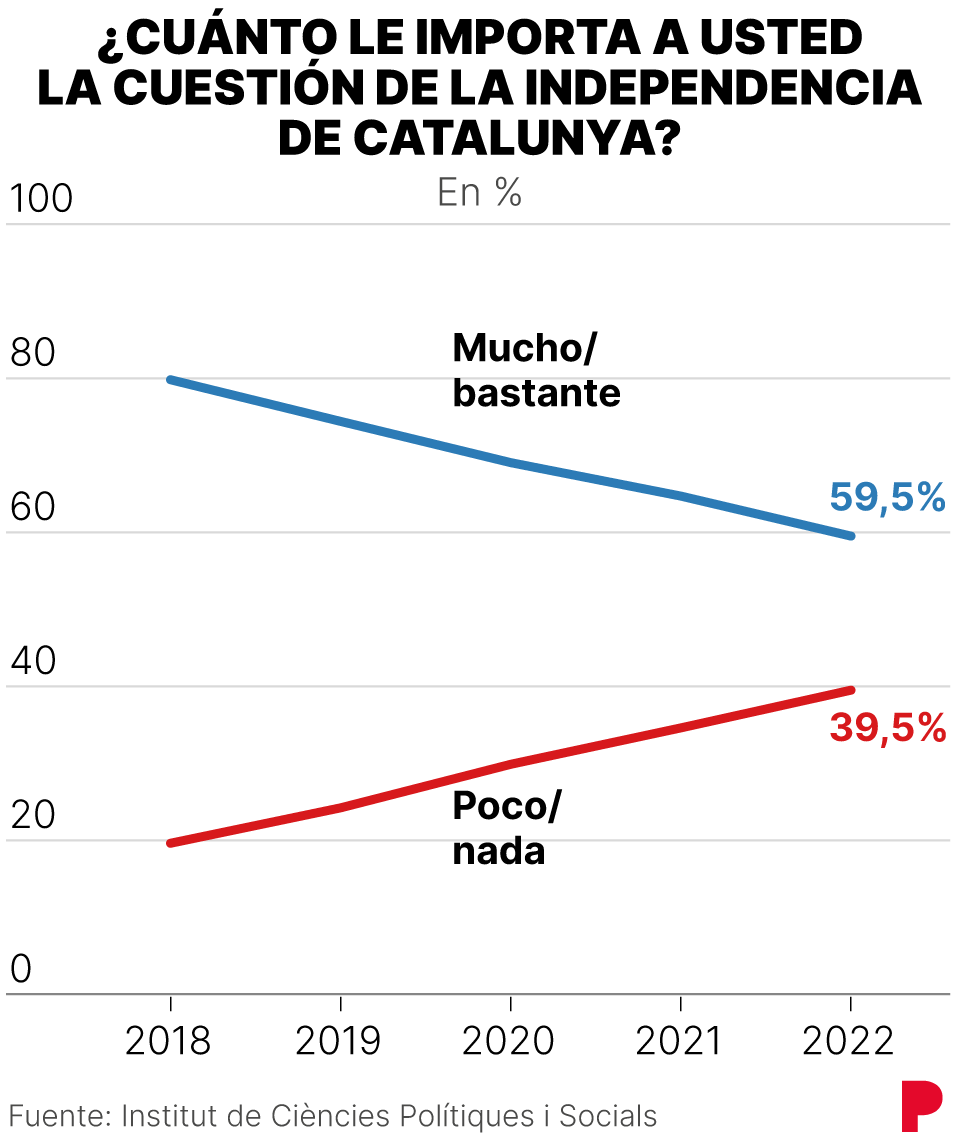
Abandon the ‘process’?

And another very relevant change: the option of ending the ‘procés’ has doubled in the last year among pro-independence voters, from 22% to 43%. The breakdown of the Government between ERC and Junts would explain this reversal, similar to the drop in the percentage of sovereignists who believe that the ‘procés’ will culminate in secession: in 2019 it was 32%; in 2021 it went to 21%; and now it has plummeted to 9%. In the group of Catalans, those who think that the ‘procés’ will lead to independence barely represent 4%.
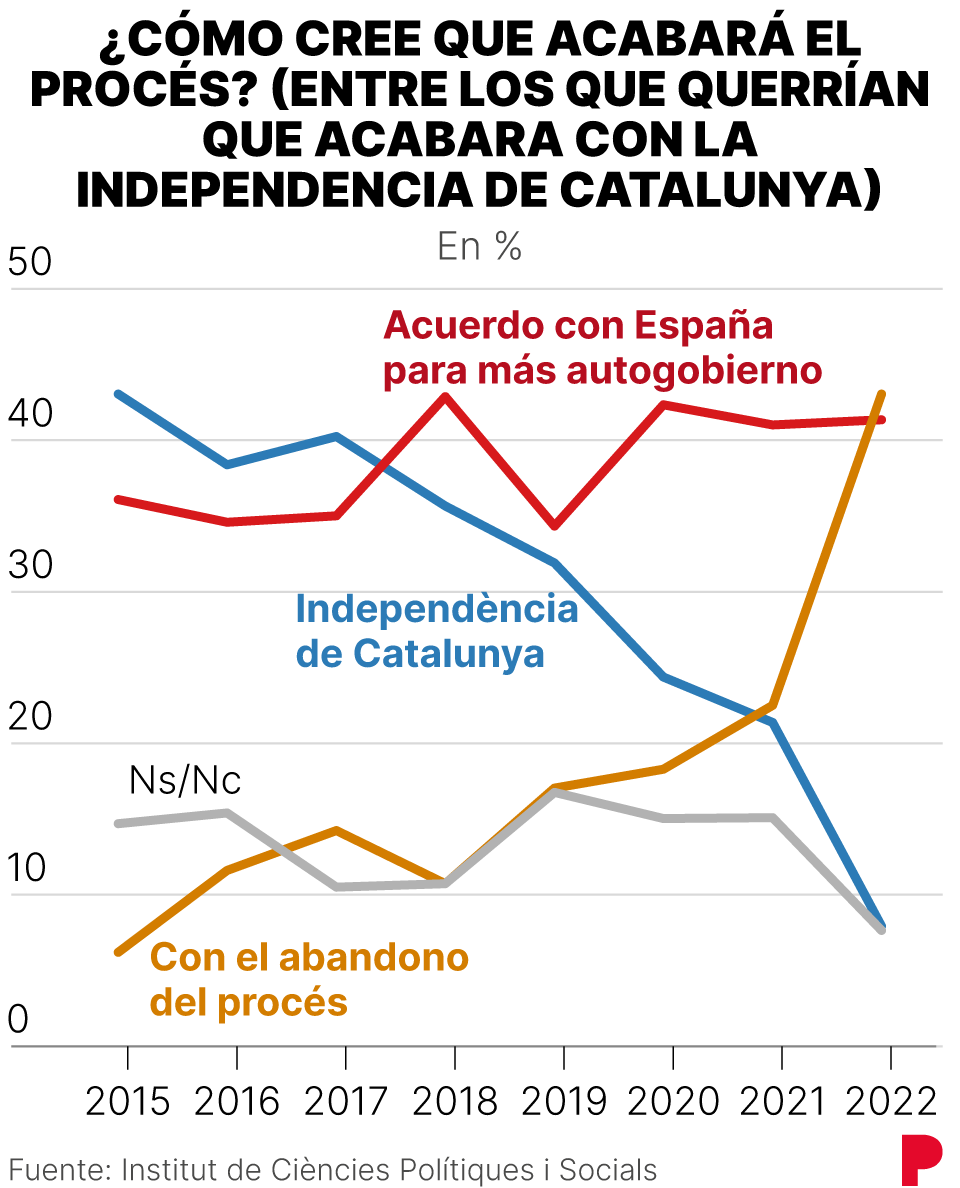
Source: www.elperiodico.com

